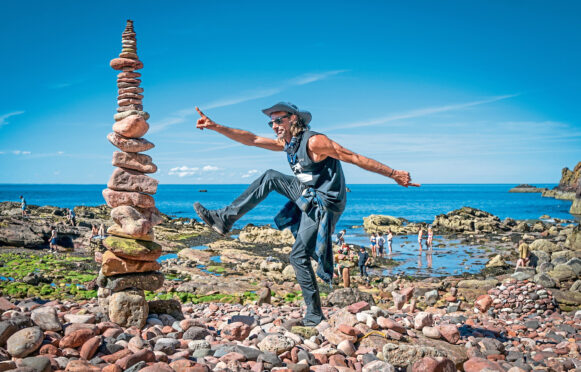
Scotland’s tourism industry leaders are cautiously optimistic for a good summer season but fear that the cost of living crisis may inflict a long, cold winter.
Rising energy and supply costs, an upturn in Covid cases and problems with staffing are the leading factors meaning optimism around healthy visitor numbers so far this summer is tempered.
Gordon Morrison, chief executive officer of the Association of Scottish Visitor Attractions (ASVA), said very few members were talking about a full-blown post- pandemic recovery as the challenging conditions bite.
“Whilst there is a sense of optimism, it is very much offset by a real concern about what the winter is going to look like,” he said. “I have no doubt we are going to have a decent summer but we’re not going to make the money to compensate for what is going to be a very tricky winter. In terms of income, the numbers are good and spending is quite healthy but the cost of doing business is only getting bigger and bigger and the actual profitability of the sector isn’t quite as good.
“There will be another bump in prices, which will mean a very difficult off-season both in terms of attracting visitors and in the costs of doing business. For example, utility bill costs for large visitor attractions, you’re talking up to 300% on pre-pandemic levels.”
Loads of visitors, no staff: Tourism industry 45,000 workers short
There are positive signs for the industry with high levels of domestic visitors and tourists arriving in “decent numbers” from the US and Europe, although not from the Asian market as yet.
But a survey of 313 Scottish attractions by the ASVA, released last month, found a significant number of businesses were unable to operate at full capacity due to a combination of staffing and financial issues.
“All of the attractions are looking busy, there’s a real hustle and bustle but often they’re trading at a lesser capacity than in 2019,” said Morrison.
“We’ve also still got considerable recruitment issues, both in terms of coming in and retention. A number of operators have reduced facilities or hours, which impacts on the number of visitors in the door and the amount of money made.”
The concerns for the industry lie mainly in the off season and also the impact on next year’s trading.
“It’s normally when attraction operators will look to invest in the business and improve the quality of offering they have but there’s a real concern about future investment,” said Morrison.
“If they need the money just to keep the business ticking over and survive, where is that going to come from? That impacts on future visitor numbers and income that can be made.”
Elsewhere in the tourism sector, bed & breakfasts, hotels, restaurants and tour operators have reported concerns over bookings and spending.
Almost 40% of businesses surveyed by the Scottish Tourism Alliance last month reported a decrease in bookings and also in spending since May 2021, while 55% reported international bookings lower than in 2019.
David Weston, chairman of the Scottish Bed & Breakfast Association, said: “For us, the season is going quite well for bookings but margins are very squeezed. There are worries about how things will be this coming winter and next season, and about people’s disposable income.”

Enjoy the convenience of having The Sunday Post delivered as a digital ePaper straight to your smartphone, tablet or computer.
Subscribe for only £5.49 a month and enjoy all the benefits of the printed paper as a digital replica.
Subscribe